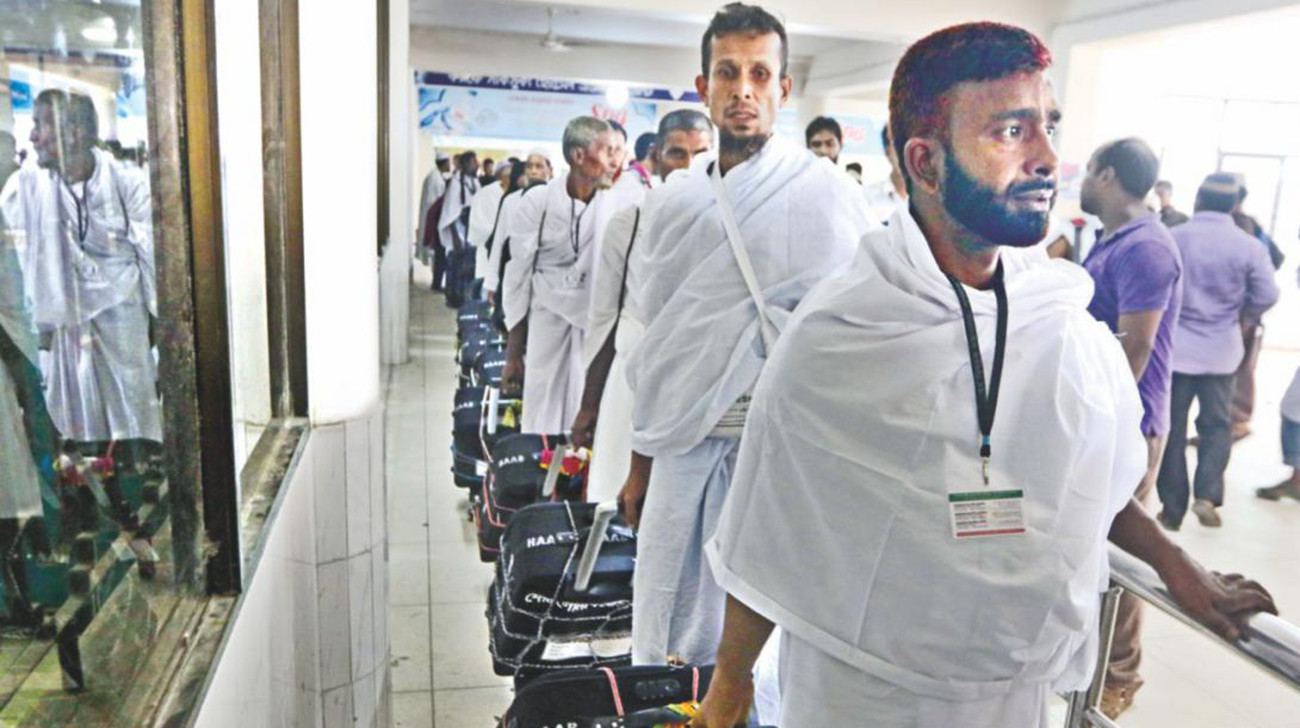Too young for Hajj? Saudi’s child participation ban divides pilgrims

The recent decision by the Ministry of Hajj and Umrah, Kingdom of Saudi Arabia, to ban young children from performing the Hajj this year has sparked mixed reactions in people. Some feel it compromises the traditional meaning of pilgrimage, while others see it as a vital safety and crowd management precaution.
Hajj — one of the five pillars of Islam, is not merely a religious obligation, but a spiritual journey. Every year, millions of pilgrims from around the world congregate for the rituals.
"Saudi Arabia has set the minimum age of children at 12, as pilgrim numbers return to pre-pandemic levels. This is part of their efforts to give priority to those who have not performed Hajj yet," says Raihan Ahmed of Raihan Tours and Travels.
Sajid Karim, who runs a travel agency in Mohammadpur, described the frustration of people like him. "It's a disaster for small agencies like ours. Many of us took deposits from families expecting to travel with their children. Now, parents are either demanding refunds or struggling to rearrange their plans. It's chaotic."
Maher Islam, a 42-year-old businessman from Dhaka, said, "We have been saving for years, as we were planning to go as a family. My wife and I were excited to introduce our son to this sacred experience at a young age. We all were mentally prepared for this. But now, we have to make the difficult choice to either put off our Hajj plans or wait till the Saudi government changes their mind because we really cannot think of going without him."
Dr Md Mamunur Rashid, an oncologist who is also the father of two daughters, expressed similar feelings — "A once-in-a-lifetime journey — now without our kids!"
Saudi authorities have used safety concerns, logistical challenges, and overcrowding to defend their decision. Crowd control, indeed, has been a major problem in Mecca every year. It is extremely challenging to guarantee everyone's safety, especially children, when more than two million pilgrims are gathered.
However, Rafiul Rony, a 55-year-old businessman from old Dhaka, questions the logic behind the ban. "If safety was the primary concern, why not improve crowd management instead of outright banning children? Families have been performing Hajj together for centuries," he said.
Dr Nadia Ferdous, a devout Muslim and nephrologist in Dhanmondi, however, supports the move. She feels young children are not physically capable of performing hajj. "Hajj is both physically and financially demanding. Children can easily get lost, suffer from exhaustion or fall sick in the extreme heat. Also, parents often get distracted by the children. This is about their well-being, not exclusion."
Hassan Sheikh, from Khulna, also pointed out, "Hajj is already overwhelming with adults. Children running around in crowded places can lead to accidents. Maybe this is the best decision in the long run."
Some prospective pilgrims welcome the decision, as they view this ban as a way to enhance discipline and order during the pilgrimage to Mecca.
"Taking care of them (children) during Hajj would have been difficult," Fatima Rahman, a college teacher, stated. "Maybe this will help parents fulfil their religious obligations with full devotion, without the stress of managing young ones."
Ismot Hasnine, a university student, said, "Hajj is a physical Ibadat (worship). So, I think it's a good decision. The only sad part is you probably won't see cute babies in the hajj reels anymore!"
While the ban has stirred debate, it ultimately reflects Saudi Arabia's attempt to balance tradition with safety. Whether seen as a necessary precaution or an undue restriction, the decision underscores the evolving challenges of managing one of the world's largest religious gatherings.




 For all latest news, follow The Daily Star's Google News channel.
For all latest news, follow The Daily Star's Google News channel. 
Comments